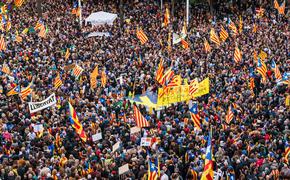The views expressed in our content reflect individual perspectives and do not represent the authoritative views of the Baha'i Faith.
A common theme, prophecy and promise runs through the holy scriptures of all the major world religions—the “re-gathering” of the human race into one fold.
Those scriptures tell the story of the historic dispersion of the human race throughout the world; and the coming regathering of that race into one human family living in peace on our planet.
This regathering, collectively associated with the maturity or coming of age of the human race, has already begun to occur. Circumstances, modern transportation, technology and an increasing level of personal and cultural interaction have forced human beings from all ethnicities, cultures, and walks of life to intermingle at an accelerating rate—both within and between nations.
We are witnessing that long-promised regathering in the world today.
This regathering generates great possibilities and complex challenges. To successfully fulfill these possibilities and wisely resolve these challenges will require mature, transformative decision-making capacities—in families, neighborhoods, communities, organizations, and city, state, national and international institutions—which are not yet evident. As we survey these decision-making venues, we see the predominance of adversarial deliberation practices that generate destructive conflict, inaction on pressing problems, and sub-optimal decisions (when they occur) that foster new rounds of conflict.
But that’s what we can expect when we use old decision-making tools to address new problems and opportunities.
Fortunately, a new decision-making process does exist. The Baha’i teachings have provided a transformative decision-making method to help us manage and optimize this regathering that represents humanity’s coming of age. This new methodology, called Baha’i consultation, was brought to humanity by Baha’u’llah, the prophet and founder of the Baha’i Faith; who promised that applying it at all levels of society will help humanity build a world characterized by peace, justice and unity in diversity.
Referring to the new process known as consultation as a mature, deliberative path, Baha’u’llah wrote:
Consultation bestoweth greater awareness and transmuteth conjecture into certitude. It is a shining light which, in a dark world, leadeth the way and guideth. For everything there is and will continue to be a station of perfection and maturity. The maturity of the gift of understanding is made manifest through consultation. – Baha’u’llah, quoted in Consultation: A Compilation, p. 3.
The Baha’i teachings say the process of consultation guides us away from obsolete, unproductive decision-making practices to ones that optimize our understanding of any given issue.
How do we know when we use adversarial decision-making practices? One indicator: the deliberation devolves into a swamp of false dichotomies like the following:
- We can do it my way or your way—there is no in-between way.
- We can live on a budget or we can be free and enjoy life.
- We can have national borders that are open or borders that are closed.
- We can totally control access to guns or we can make them freely available to all.
- My candidate is all virtue, and your candidate is all evil.
- You can support management or labor—make your choice.
- We can have government that is small and nimble or large and bureaucratic.
When false dichotomies emerge along with the polarized and debilitating arguments that accompany them, we know that our understanding of the issue will remain shallow; and the regathering of the human family will be mismanaged—in our homes, neighborhoods, cities, states, nations and the world.
What happens when we use consultation as the new decision-making alternative? For one thing, the consultative process frees us from a preoccupation with overly simplistic, false dichotomies; and it fosters deep, collaborative exploration of the rich middle ground between them—where the creative, nuanced solutions reside.
In addition, the consultative decision-making process draws forth the mature adult in each of us and connects us to our latent, but transformative, deliberative skills such as: separating our egos from our ideas; honoring the inherent value of each participant; disagreeing with equanimity; speaking with perfect honesty, openness and liberty within a context of courtesy, moderation and patience; treasuring the diversity within the group; and achieving unity in the implementation of decisions.
What is more, this mature decision-making process is informed by reference to spiritual principles and human values that not only call out the best in each of us, but guide us to go deeper and discover nuanced, multi-faceted solutions that address the problems and exploit the opportunities more effectively than ever before.
For example, consider the contemporary social crises that currently cause consternation and disunity in many countries and in the world at large. If the spiritual principles and human values relevant to these issues were identified and agreed upon prior to the search for solutions—as they would be using Baha’i consultation—it could change the inherently conflictual deliberation processes currently on display into a profound, inspired and comprehensive decision-making process that would generate social progress.
To illustrate, some of the spiritual principles relevant to controversial social issues about immigration and borders (in quotes) and human values (not in quotes) might be the following:
- “The earth is but one country, and mankind its citizens.” – Baha’u’llah, Gleanings from the Writings of Baha’u’llah, p. 250.
- The members of the human race are one family spiritually.
- “Be a home to the stranger, a balm to the suffering, a tower of strength for the fugitive.” – Baha’u’llah, Epistle to the Son of the Wolf, p. 93.
- “Let no one seek his own good, but the good of his neighbor.” – 1 Corinthians 10:24.
- Law and order are the basis for peace and security in every civilized society.
- The bonds that unite individuals are love, compassion and forbearance; but what bonds nations together into a united world is justice.
- “Justice has a mighty force at its command. It is none other than reward and punishment for the deeds of men. By the power of this force the tabernacle of order is established throughout the world …” – Baha’u’llah, Tablets of Baha’u’llah, p. 164.
- “The structure of world stability and order hath been reared upon, and will continue to be sustained by, the twin pillars of reward and punishment.” – Baha’u’llah, Gleanings from the Writings of Baha’u’llah, p. 219.
A close reader will notice that the first four spiritual principles/human values seem to direct our solution-finding in one direction, while the second four seem to direct us in a different direction—and these two directions represent polarized sides of the current arguments in society. In reality, this perception is a false dichotomy, because the truth of the matter can only be understood by entertaining all eight spiritual principles/human values at once.
The wise, robust, loving, just and unifying solution must be a nuanced one that honors all of the principles together.
The foregoing deliberation characteristics reflect mature, collaborative, transformative decision-making in keeping with the emergence of the collective maturity of the human race. This kind of decision-making can expedite the regathering of the human family, advance civilization, and bring justice and peace to the world.
As we observe the fractious and largely unproductive deliberations at local, state, national and international levels all over the world today, it is difficult to imagine that the path to peace, justice and unity is anything but long and winding. However, for the increasing number of early adopters in families, communities, organizations and institutions in the world transforming their deliberative skills using Baha’i consultation, the path to peace, justice, and unity is increasingly straight—and the straightest path between two points is always the shortest.
If the path to justice, unity and peace in your personal world seems long and winding, learn more about Baha’i consultation, the deliberative straight path, by reading our book, TRANSFORMED: How to Make the Decisions That Change Your Life. For more information, go to www.billandjeanharley.com
You May Also Like
Comments

















I just found and read your article as titled above. THANK YOU for this! We host a monthly “Open Door Conversations” with friends and we plan to use your article as a starter for the upcoming one.